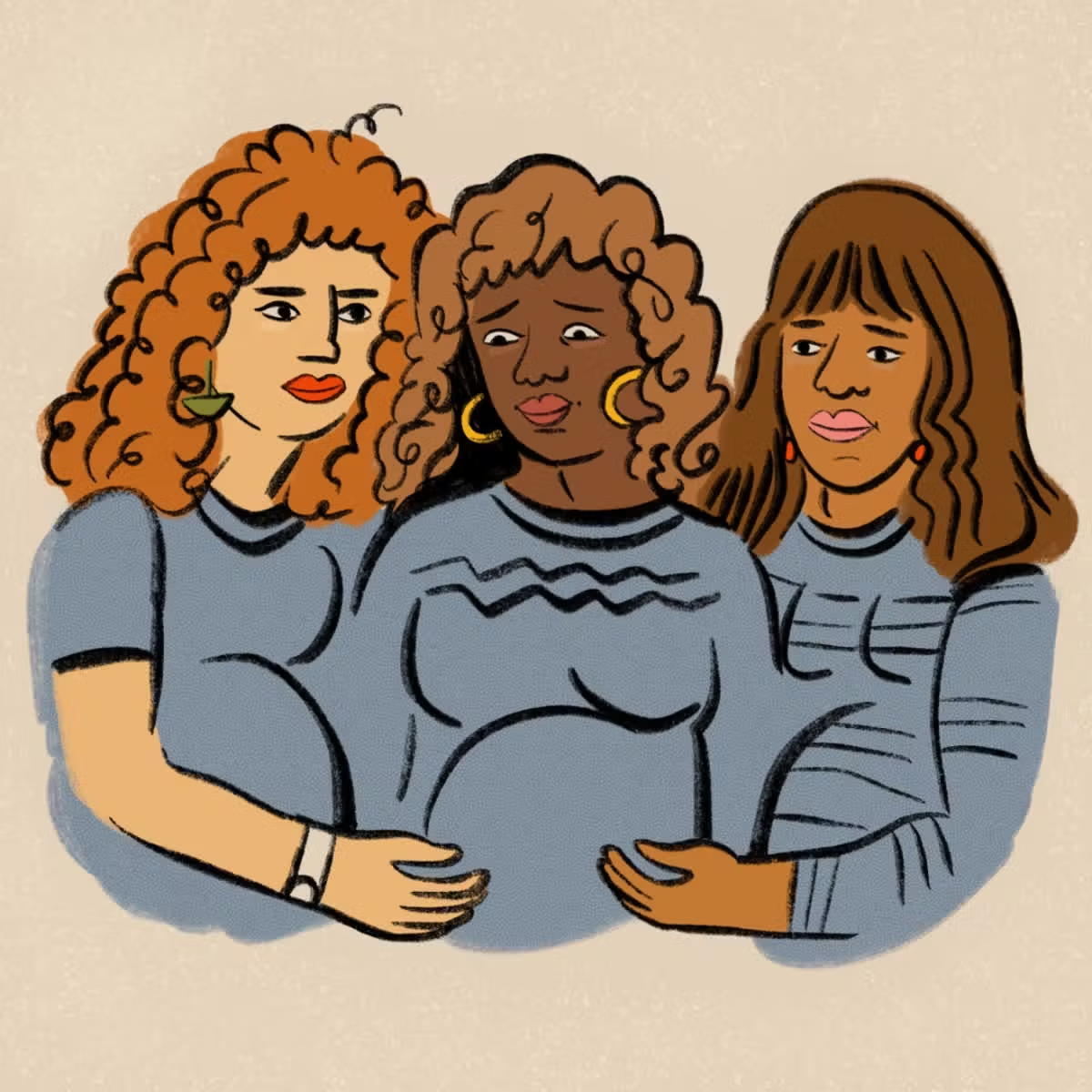WHEN TO ASK FOR HELP WHEN YOU’RE PREGNANT

Let’s be real. You have a lot going on. Your belly is growing, your mind is racing, and you have a million things to do before your baby is born. Bringing a child into the world isn’t easy — especially if you’re working and already have kids at home — but you don’t have to do it all on your own. Here are five instances where you should never think twice about asking for help.
WHEN YOU’RE TRYING TO QUIT SOMETHING
When it comes to what to avoid during pregnancy, three substances top the list: drugs, alcohol, and smoking. All of these things can be harmful to both you and your baby, not to mention extremely hard to quit. If you’re having a tough time quitting any of the above, work with your doctor at your next prenatal visit to write up a quit plan and talk about what options might be available to you.
WHEN YOU FEEL TERRIBLE
Few parts of your body are left unaffected by pregnancy, and that includes your ability to fight off infections. Your defenses are lowered so that your body doesn’t reject your growing baby, and that means it’s easier for you to get sick and harder for you to recover.
While it’s in our nature as moms to power through when we feel sick, it’s also important to take care of yourself. Certain diseases like the flu can be particularly dangerous for pregnant women and their babies, and early treatment is crucial.
If you feel sick, call your doctor to find out if you should be seen right away. Then, get help from people around you so you can focus on getting better. Ask family members to help pick up your kids from school, or a co-worker to trade shifts with you so you can stay home and get some extra sleep.
Pushing yourself too hard might prolong your illness. The quicker you recover, the quicker you can get back to being supermom.
WHEN YOU’RE STRESSED OR EXHAUSTED
You don’t have to be sick to need a break. Being stressed out all the time can increase your risks of going into labor too early or having a baby too small. Finding ways to reduce or manage that stress during pregnancy is key, and sometimes that means calling in a lifeline. Ask a friend to go on a walk with you over your lunch break to vent, or a neighbor to watch your toddler for an hour or two while you nap.
When you’re pregnant, self-care is baby-care, so don’t feel bad about recruiting help so you can take a break.
WHEN YOU NEED TO LIFT SOMETHING HEAVY
Your center of gravity can shift quite a lot during pregnancy as your baby bump grows, and hormone-loosened ligaments can affect your balance and make you less stable. If you fall, your body is built to protect your baby — all that fluid in the placenta serves as a sort of cushion for them — but you could still end up going into labor too soon or have serious complications.
In short, not only are you more likely to fall when you’re pregnant, but it’s a bigger deal if you do, especially if you’re in your second or third trimester.
Those loose ligaments and joints also make it easier to get injured if you lift things that are too heavy. Your doctor can tell you what weight limits you should avoid, but generally speaking, the CDC recommends pregnant women avoid or reduce physical demands, including heavy lifting, reaching, bending, or standing for prolonged periods. Even then, you shouldn’t do it often and always use both hands when picking up things (or toddlers!).
If you have to routinely retrieve things that are heavy or stored up high, the safest option is to let someone else do it. Let a co-worker bring down the large box from the stacks, a family member bring in the loaded bags of groceries, or a store employee lift the bassinet box into the cart. You already know you are a strong, capable woman. You have nothing to prove.
WHEN YOU FEEL LIKE SOMETHING’S OFF
When you’re pregnant, it can seem like every day brings some new sensation, feeling, or discomfort — most of which are completely normal side effects of your brain and body preparing for your baby to be born. Some things, however, can be signs of trouble.
If you’re feeling overly anxious, or you’re getting really swollen, or you just feel like something’s not right — talk to your doctor or midwife. They will either reassure you that everything’s OK, or help you figure out a path forward.